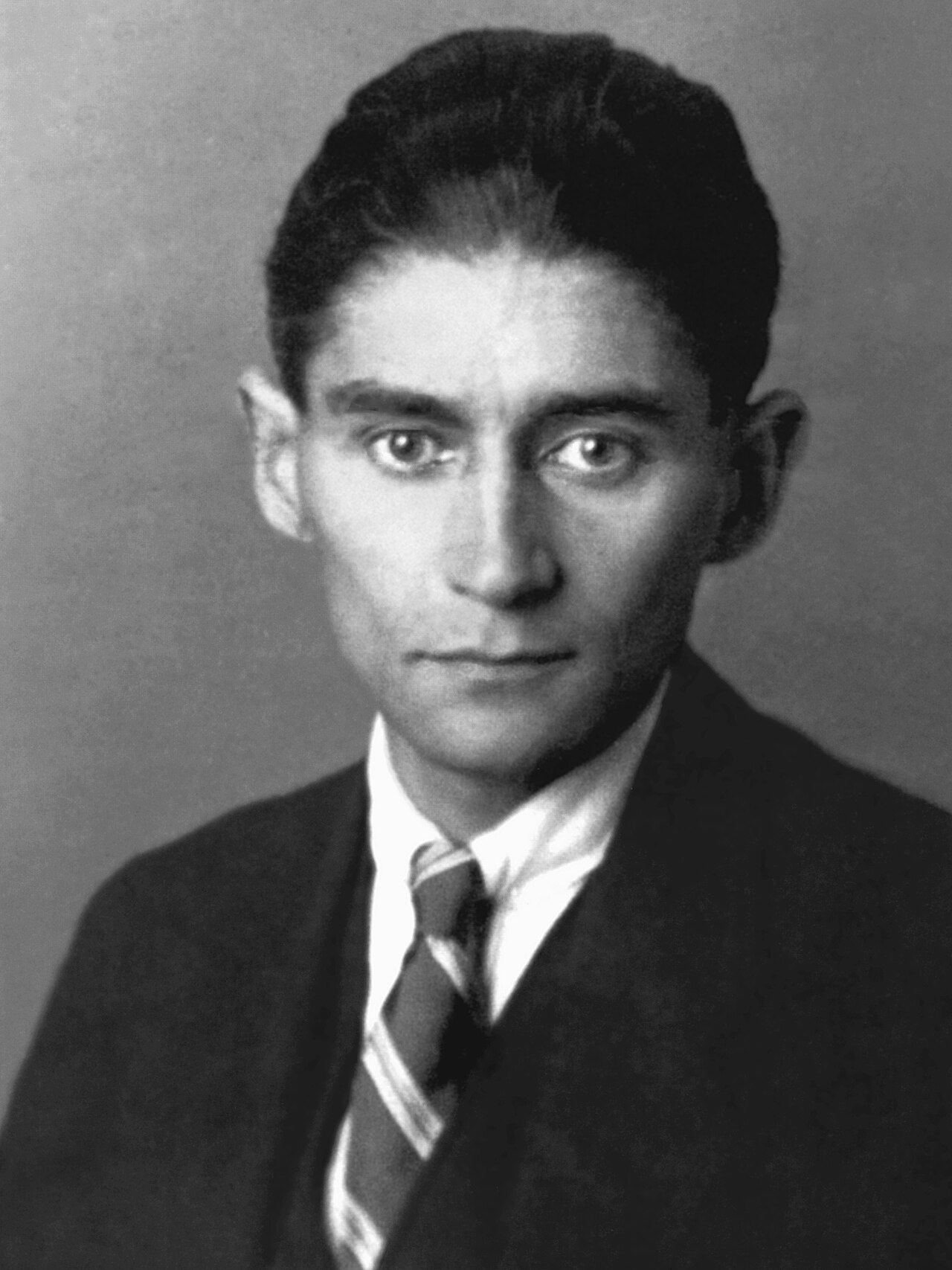Castle (Franz Kafka) review
Castle is an unfinished work by Kafka. Its unfinished state is not detrimental to its major theme, but rather it strengthens its sense of absurdity, symbolizing an infinite fruitless loop that the protagonist pursues for the mission as a land surveyor.
In it a protagonist known only as “K.” arrives in a village and struggles to gain access to the mysterious authorities who govern it from a castle supposedly owned by Graf Westwest.
Author
Franz Kafka (3 July 1883 – 3 June 1924) was a German-language novelist and writer from Prague. He is widely regarded as a major figure of 20th-century literature.
Kafka was born into a middle-class German-speaking Czech Jewish family in Prague.
He burned an estimated 90 percent of his total work due to his persistent struggles with self-doubt. Much of the remaining 10 percent is lost or otherwise unpublished.
History
Kafka began writing the novel on the evening of 27 January 1922. He died before he could finish the novel.
His friend Max Brod published most of his work after Kafka’s death(although not instructed to do so). In order to ready it for publishing, Brod heavily changed the text.
The publisher soon realized the translations were “bad” and in 1940 desired a “completely different approach”. Malcolm Pasley
and a team of scholars restored the original German text to its full and incomplete state, including Kafka’s unique punctuation, considered critical to the style.
Title
The title Das Schloss may be translated as “the castle”, “the palace”, or “lock”. It is also phonetically close to der Schluss (“conclusion” or “end”).
Theme
“Kafkaesque”
“Kafkaesque” refers to situations that are surreal, nightmarishly complex, bizarre, or illogical, involving oppressive and often incomprehensible forces. This term captures the essence of Franz Kafka’s literary style, where characters find themselves in disorienting and frustrating circumstances that defy reason.
Absurdism: Depicting a world where characters encounter irrational and illogical obstacles, thwarting their pursuit of meaning or purpose. In The Castle, K.’s attempts to fulfill his role are endlessly obstructed, reflecting the absurdity of trying to impose logic on a chaotic universe. (confusing bureaucratic procedures, low effectiveness of the system, temptation(Frieda), and indifferent villigers)
Existential Absurdity: Kafkaesque also conveys existential absurdity, where characters grapple with a universe indifferent to their search for meaning. K.’s continuous struggles against inexplicable barriers exemplify this, highlighting the futility of seeking clarity or purpose in an indifferent reality.
The Kafkaesque experience encompass a range of obstacles, such as:
- The Environment: A cold, unwelcoming setting that adds to the protagonist’s isolation and struggle.
- Indifferent Villagers: Characters who are unhelpful or dismissive, intensifying feelings of alienation and frustration.
- Personal Relationships: Complex and ambiguous interactions that complicate the protagonist’s efforts rather than providing solace or support.
- Bureaucratic Obfuscation: Alienating and dehumanizing procedure that largely impedes K from working effectively.
Existentialism
Simone de Beauvoir, who considered The Castle a pioneering work of existentialism, said of it, “Kafka spoke to us about ourselves.” It seems somehow proper the story has no ending, that the events recounted seemingly form part of an infinite series of occurrences, of which only a small segment has found its way onto the pages of a novel.
Salvation (Bible)
One interpretation (Originally by Max Brod) of K.’s struggle to contact the castle is that it represents a man’s search for salvation.
Quest for Authority (Castle/God): K.’s attempts to access the castle mirror humanity’s search for connection with God, akin to the biblical quest for divine approval and entry into heaven.
The Unknowable Divine: The castle’s mysterious and inaccessible nature symbolizes the incomprehensible nature of God, reflecting the biblical idea that divine intentions are beyond human understanding.
Grace and Redemption: K.’s struggles suggest that favor from the castle, like divine salvation, cannot be achieved through human effort alone, echoing the biblical notion of grace as a gift from God.
Alienation and Pilgrimage: K.’s feelings of not belonging and his relentless search for meaning resemble the spiritual journey of believers who see life as a pilgrimage toward a divine home, similar to the biblical view of life on earth as a temporary journey.
Theme of Judgment: The arbitrary judgment K. faces parallels the biblical theme of divine judgment, where the reasons for divine favor or disfavor are often unclear.
Ambiguity and Meaning: The unresolved narrative in The Castle reflects the uncertainty of the spiritual quest for salvation and mirrors the ambiguity in understanding divine will in the Bible.
reference
Franz Kafka - Wikipedia
The Castle (novel) - Wikipedia
ChatGPT (for elaboration or explanation of some hard ideas)
The Castle | Introduction & Summary | Britannica